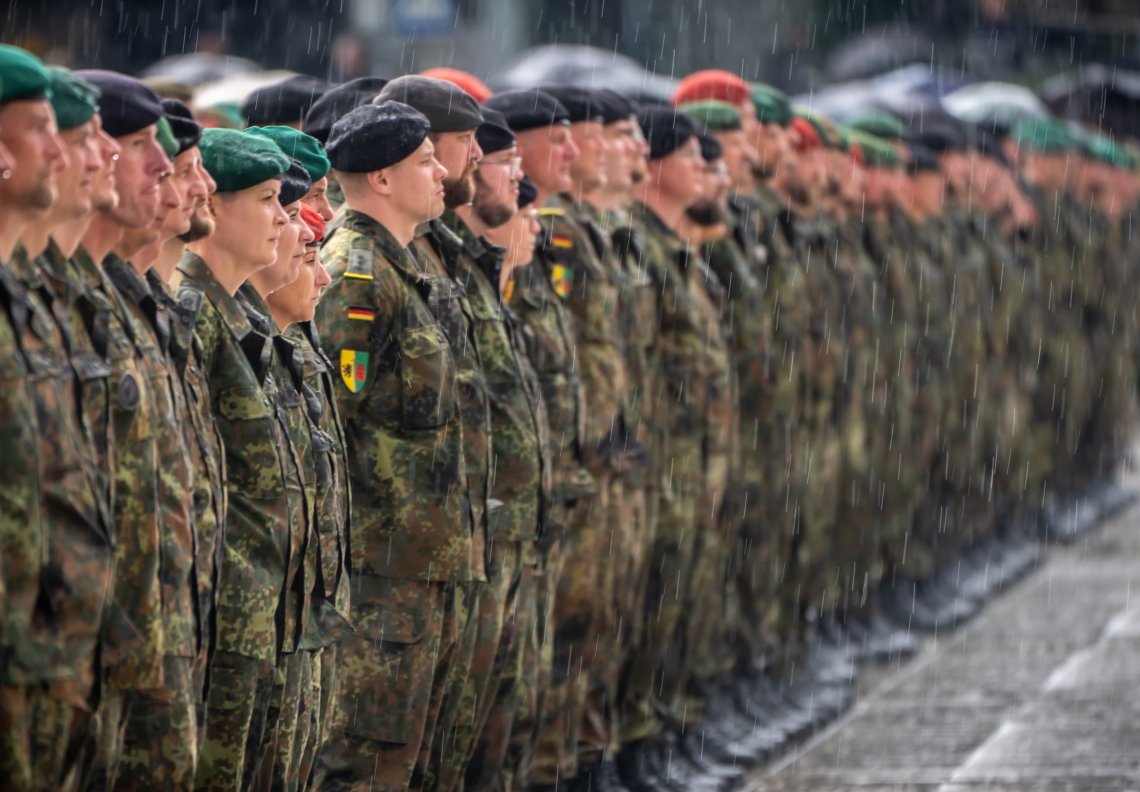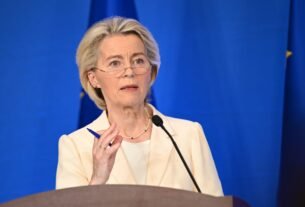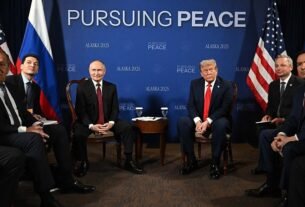Tonight European leaders are accompanying Ukrainian president Volodymyr Zelenskyy to Washington to feel out Donald Trump’s commitment to Ukraine security guarantees, but his aren’t the only cold feet at the table.
Clearly words alone have not worked for Ukraine. In 1994 Kyiv signed the Budapest Memorandum, in which Russia, the US, and UK agreed to “respect the independence and sovereignty and the existing borders of Ukraine”. In exchange, Ukraine surrendered the world’s third-largest arsenal of nuclear weapons.
Russia broke that agreement when it annexed Crimea, reminding us that security guarantees must be more than warm words.
So what about something with some legal heft?
Kyiv first applied for NATO membership in 2008 and even wrote this aim into its constitution in 2019 (along with eventual EU membership). The reason: to benefit from the alliance’s critical Article 5, which rules that an attack against one is an attack against all.
However, Trump has repeatedly made clear that NATO membership for Ukraine is not an option.
Which brings us to the current situation, where leaders outline an abstract agreement that would make Ukraine a NATO member in all but name. Commission President Ursula von der Leyen welcomed “President Trump’s willingness to contribute to Article 5-like security guarantees for Ukraine”, adding that the EU “is ready to do its share”.
But is the EU ready? Do we welcome it? And more importantly, does Ukraine?
On the face of it, Article 5 sounds like a strong commitment. But Italian Prime Minister Giorgia Meloni told senators that the response to Article 5 activation doesn’t have to be immediate use of force.
This isn’t mere assertion. NATO’s official understanding of Article 5 is exactly that: “each Ally [is] responsible for determining what it deems necessary in the particular circumstances”.
It is not inconceivable that with an ersatz Article 5 in place, NATO countries could simply commit to providing the kinds of supports they currently give rather than risk the lives of their own.
Skin in the game
The only way to deter Russia from attacking Ukraine again is to create a credible threat of a military response that Moscow cannot beat, with much less wriggle room for would-be protectors to get out of. This can only mean troops on the ground from Europe and the US.
It was the prospect of killing American soldiers in any potential Cold War invasion of West Germany that gave the Soviet Union pause for thought. Moscow could defeat Bonn in a war, but not Washington.
The 20th century’s brutal logic continues to apply, but only if we’re up for it.
Paris floated sending troops last year and London has expressed its willingness to do the same. But French President Emmanuel Macron’s proposal was resisted by Madrid and Warsaw, and dodged by Mark Rutte – just before he started as NATO Secretary-General.
This morning, Germany’s foreign minister pooh-poohed sending troops to Ukraine.
A brigade in Lithuania “and additionally stationing troops in Ukraine would probably overwhelm us” Wadephul said, echoing Bundeswehr concerns on the Table.Today podcast.
And while Trump may be consistent in his inconsistency, the last official position of his defense secretary was that the US will not send troops either.
We can hope that under the table tonight Macron, Starmer, and von der Leyen will warm the feet of Meloni, Merz, and Trump, but I wouldn’t bet the house on it.
(ow)






